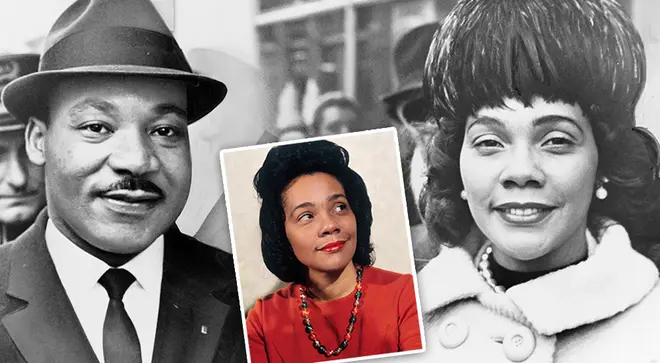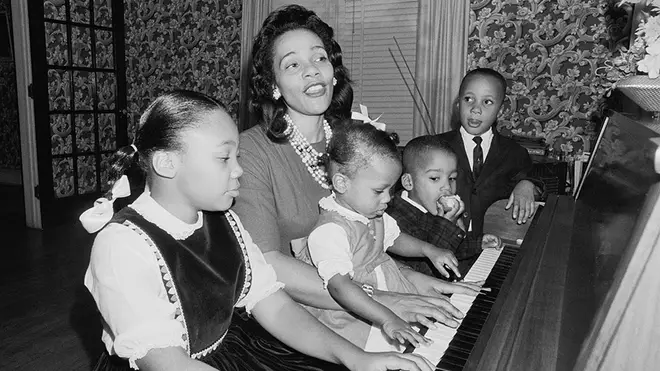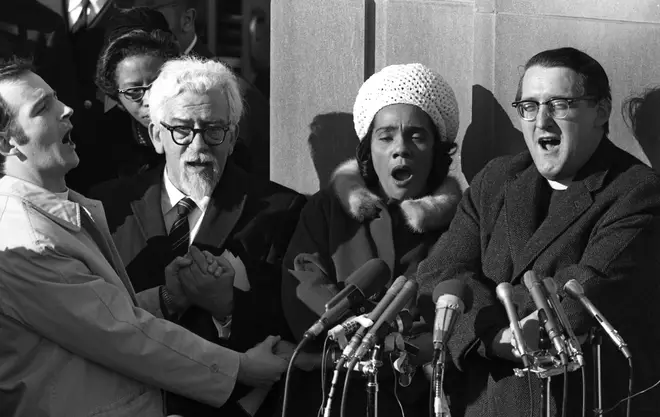On Air Now
Calm Carols with Ritula Shah 10pm - 1am
16 February 2021, 13:15 | Updated: 17 February 2021, 13:37

Martin Luther King Jr.’s wife was an unsung civil rights activist with a deep passion and gift for music.
“A lot of people don’t know me and think that I’m a cold, uncaring person. That I only became who I am because I’m Martin’s wife,” racial equality advocate and trained singer Coretta Scott King says in an interview with National Visionary Leadership Project.
For much of her life, King’s achievements were downplayed next to those of her husband, social justice activist Martin Luther King Jr.
And her story, still widely untold, began with music.
In the family’s hometown, in then-segregated Alabama, Coretta Scott’s mother became known for her singing voice and performed solos in church. “There was no place else to sing for her when I was growing up,” Coretta Scott says in the same interview.
Scott was bathed in song from a young age, and soon began performing solos of her own, singing spirituals and hymns at church and in school. “I became the star pupil that the teacher showed off with when the dean supervisor came around.”
At high school, Scott’s music teacher taught her of opera’s great African American singers. “She introduced us to the classics… Marian Anderson, Paul Robeson, Roland Hayes.”
Then, she says, “I got the notion that I would really like to study music because when I heard classical music for the first time, I liked it.”
Read more: 11 black opera singers you should know about >

Coretta Scott King Sings - There Is A Balm In Gilead
In her last two years of high school, Scott threw herself into music. She became the leading soprano for the school’s senior chorus, played trumpet and piano, sang in the chorus, performed in school musicals – and found time to direct a choir at her home church.
She later got a scholarship to New England Conservatory, where she met her future husband. Martin Luther King Jr and Coretta Scott announced their engagement on Valentine’s Day in 1953 and married in June that same year.
Scott King finished her degree in voice and music education along with her second instrument, the violin, and the couple moved to Montgomery, Alabama.
After graduating, Scott King had envisioned a career for herself in the music industry. “After we moved to Montgomery, my husband was called to a church there [and] I continued to perform,” she says.
“I performed concerts the first year, got pregnant, had to stop, performed between babies – I have four children – and I was doing standard concerts when I had my fourth child. I realised I could not continue to do that that way.”

So, King found a way to introduce music to her and her husband’s cause.
“I developed the ‘Freedom Concert’ concept, where I narrated the story of the civil rights movement that we were involved in and sang freedom songs in between the narrations that told the story of our struggle from Montgomery to Washington at that time,” she says.
“In 1964, I did my debut with my Freedom Concert at Town Hall, raised money for the cause, and the rest of the time I raised money for my husband’s organisation doing Freedom Concerts across the country and so forth.”
King later decided to rest her vocal cords, and to give all her energy to activism.
“If you’re a performer and particularly a singer you have to rest a lot, you can’t sing tired,” she says. “Often I don’t get the amount of rest I need. It’s not easy to get back into it unless you have some time just to give to that.
“And there’s always an important cause, a need, that’s more important, it seems, than what you want to do. And because I care so deeply about, you know, people and the needs of our community and our world, it seems sort of selfish, you know, to think about what it is that I want to do.”
Read more: The haunting last words of unarmed black men, powerfully set to music >

After her husband’s assassination in 1968, King took on the leadership of the civil rights movement herself and became active in the Women’s Movement, as well as advocating for LGBTQ+ rights and opposition to apartheid.
She founded the King Center, an organisation for non-violent social change in her husband’s name, and succeeded in making Martin Luther King Jr.’s birthday a national holiday.
Coretta Scott King died on 30 January 2006 following complications from ovarian cancer. She was 78 years old.
A funeral was held for her the following month at the New Birth Missionary Baptist Church in Georgia. Over 14,000 people attended, including US presidents George W. Bush, George H.W. Bush and Bill Clinton – and then-senator, Barack Obama.
At the memorial, George W. Bush said: “In all her years, Coretta Scott King showed that a person of conviction and strength could also be a beautiful soul.”